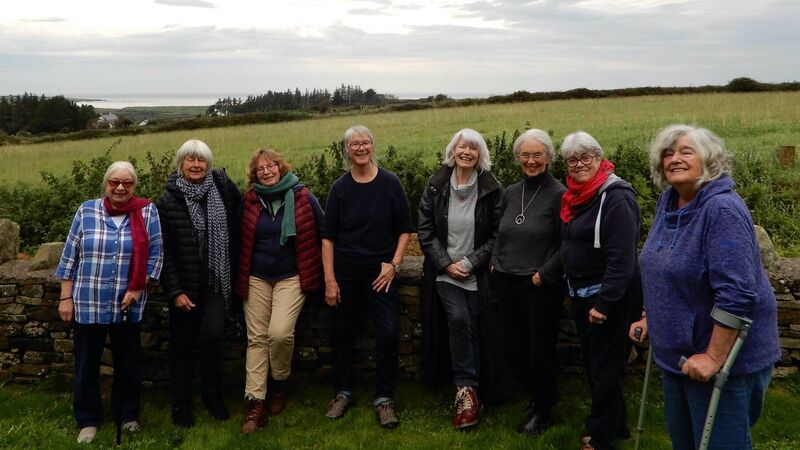Na Cailleacha: 'We’ve decided we're quite proud of being old women'

Catherine Marshall, third from right, and the other members of the Cailleacha arts collective.
A marginalised group appropriating a once-derogatory term is nothing new. LGBT movements have done it, some racial groups have done it. Now, it seems, it’s the turn of old women.
A new arts collective, made up of eight female artists based in Ireland with a combined professional practice of over 550 years, has adopted the name Na Cailleacha: the Irish word for hags or witches.




